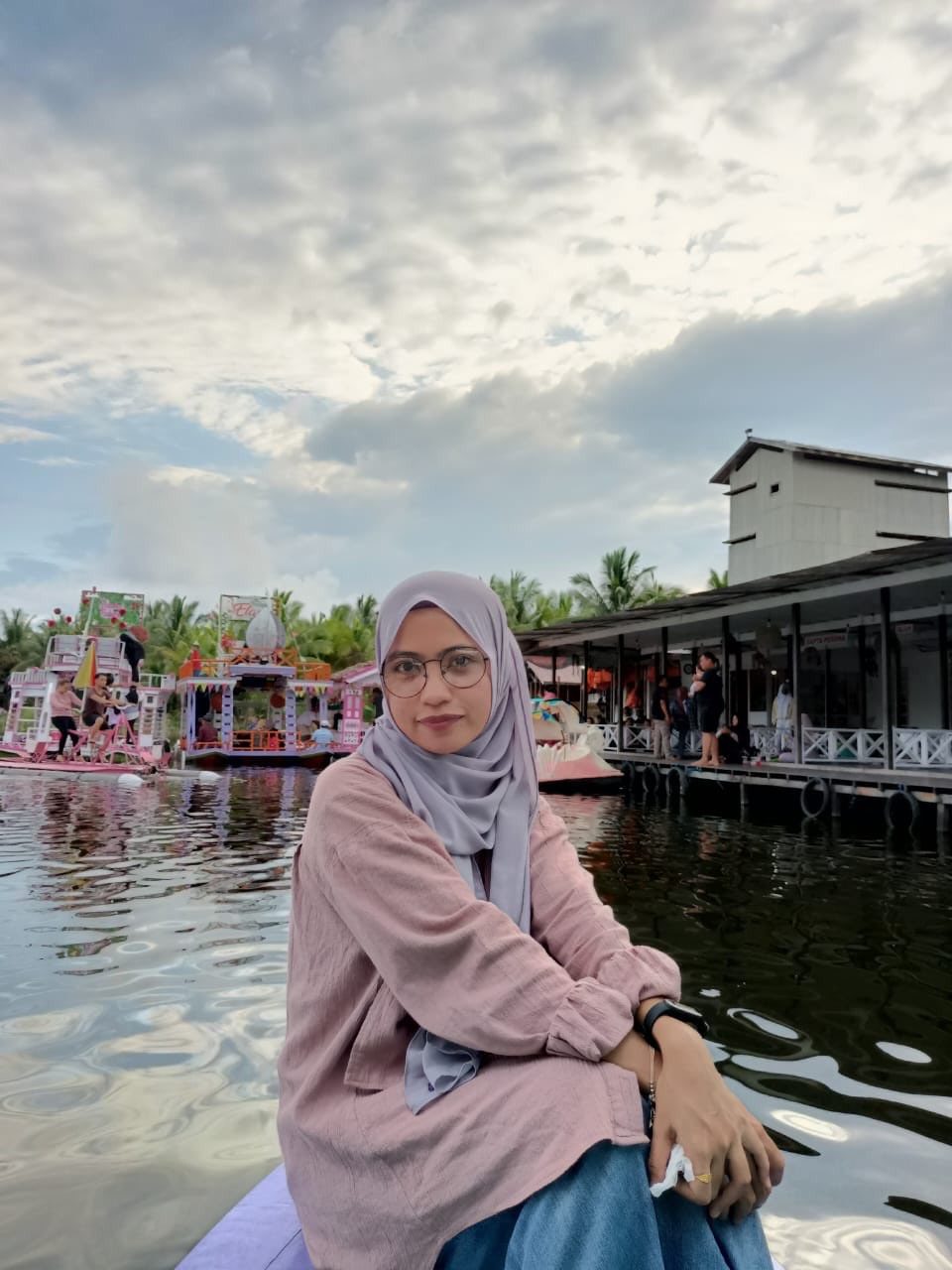



When I decided to migrate from Sulawesi to East Kalimantan, the people around me said “be careful of the Dayaks, they like to cut off people’s heads.” Their message stuck with me for quite a long time. I became hesitant to befriend Dayak people on campus, until, finally, in 2020, I participated in a writing competition that was organized by Lou Bawe in commemoration of the International Women’s Day (IWD). My article entitled “Women are Able to Fight for Their Choices” became the cornerstone of my relationship with PEREMPUAN AMAN (Association of Indigenous Women of The Archipelago)-Lou Bawe. They invited me to participate in the action to commemorate IWD, to attend the Kamisan (Thursday) protest, and to join the Mini Movement Building Institute (MBI) I & II. Only after all of these engagements did I finally find out that Lou Bawe is a Dayak women’s organization.
Never in my life did I think I would be able to interact so closely with the Dayak people. It turned out that they were not as frightening as their depiction in my family’s stories. They treated me well and provided me with a safe space, although it took me quite some time to trust them and finally tell them my stories. They also trusted me to be one of their Feminist Participatory Action Research (FPAR) facilitators, an initiative organized by FAMM Indonesia (Forum Aktivis Perempuan Muda Indonesia or Young Indonesian Women Activists’ Forum).
To be honest, I had never dreamed of being involved in a research project. I was very enthusiastic because I would learn new things and be exposed to a new environment. Yet, I felt scared that I might not be accepted or would be unable to adapt within the Dayak community, since the interlocutors were young indigenous women in West Kutai, and most of them were Dayak women and Christians. My fears were unfounded. I was warmly received by the young indigenous women who participated in the FPAR, and even the middle-aged women who were members of Lou Bawe. They prepared halal foods for me and treated me as if I were part of their kin.
At first, I thought that facilitating the FPAR would be an easy job since I have had my share of students who were around the ages of the FPAR participants. But, it turned out that my role as an FPAR facilitator was very different compared to my past facilitating experiences. Becoming an FPAR facilitator made me learn to appreciate every process; to always create a safe and comfortable atmosphere; to not patronize the participants, let alone dominate the conversation; to believe in the participants’ abilities and their stories, knowledge, values, and attitudes to be neutral; to be non-judgmental; to practice active listening; and to be empathetic and sensitive towards participants’ concerns and discomfort.
FPAR also taught me about the meaning of responsibility. During the FPAR process, I received several job offers that would have required me to travel to another city. But if I were to take it, I would have needed to resign from the FPAR team. I reflected upon my experience and contemplated the kind of life I wanted to live. Through the reflection, I realized that I wanted to live a life that made me proud and fulfilled; I wanted to actively participate in helping other women in Lou Bawe; I wanted to keep being part of the FPAR, which would let me live my life.
FPAR made me realize that Lou Bawe was indeed a Lou Bawe; since Lou means home and Bawe means women. It was truly a home for women, not only for Dayak women but for all women in East Kalimantan. Now, I’m no longer a migrant; now, I live here. FPAR added a new purpose to my life. Thanks to FPAR, I now have clear goals in mind. I want to pursue my education and improve my skills in order to keep making contributions to Lou Bawe.
Running a series of FPAR activities required me to be an observer. I observed the changes happening within the FPAR participants, both at the individual and collective levels. I’m very proud, because I got the chance to witness the changes unfold. For example, they started to share their life experiences because of the trust between participants and facilitators that we managed to build. To build such trust, we both needed to open ourselves up and become non-judgmental listeners.
Participants of FPAR learned to identify the leadership capacity that lies within them; they learned that the concept of a leader was not limited to those who were sitting on top of the organization, the indigenous chief, or the men – leadership could take many forms. For example, we could be leaders for our own selves. By striving to become a confident woman that is always drawn to learning something new, it meant that we could lead our own selves to become better people.
Through various methods and approaches, the FPAR participants started to become confident in voicing their opinions, because they realized that everyone was equal. They learned to listen and respect other people’s opinions, as well as acknowledge their privileges so they won’t judge others easily. And, for me, the most impressive thing is that all of the FPAR participants are now actively engaged in all of Lou Bawe’s activities and movements. Now, there are no more participants and facilitators. We are all part of Lou Bawe. We are proud to be part of the indigenous community and to be part of PEREMPUAN AMAN-Lou Bawe.